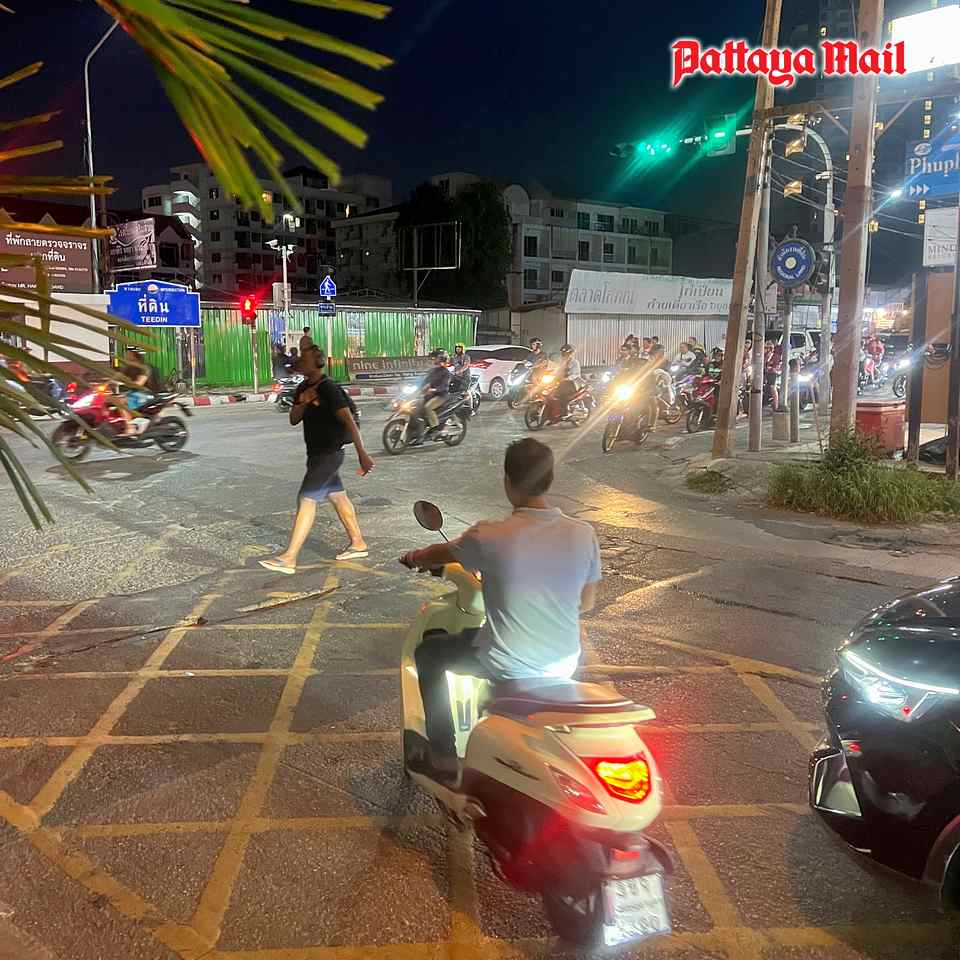
PATTAYA, Thailand – The weekend’s fireworks bonanza was another banging success for Pattaya marketing. But the silent chaos on the roads as queuing traffic took over an hour to traverse the city at peak times illustrates the downside of overtourism. Pattaya’s ancient highways were not designed for 100,000 vehicles all competing for space at the same time.
Thailand’s success in recovering from the covid ghost image has been staggering. From March 2020 to June 2021, there were no tourists in Thailand by law. Then came the “Sandbox” notion which limited foreign vacationers to 15,000 a month. But from July 2022, all barriers were dropped except for a vaccination certificate, a requirement waived from October of that year. International arrivals zoomed like never before and the calendar year 2024 looks like being similar to pre-pandemic 2019: almost 40 million for Thailand as a whole. Around one third of that total use Pattaya as a base.
Several factors mean that the traffic chaos in Pattaya has become worse. In an attempt to raise local revenue, public holidays have been increased to enable more long weekends. In Pattaya, this has stimulated domestic tourists, especially car drivers from Bangkok, to enjoy the cultural festivals which have been aggressively promoted. More and more huge hotels are being constructed in the city, but often without adequate parking for the coaches which service the guests. Thus the big buses frequently park on the roads nearby making free-flow traffic impossible.
The numbers situation is likely to get worse. Although Chinese numbers have declined somewhat, Indian arrivals are likely to boom once U-tapao airport, near Pattaya, starts receiving flights from Indian cities across the country. Direct flights from the USA to Bangkok are scheduled to begin in February 2025, one of many expanding intercontinental air schedules. Meanwhile the liberalization of property laws, which the government says may be particularly advantageous to Thai tourist-orientated cities, is now firmly on the political agenda.
Pattaya City Hall does its best with increased use of one-way streets, painted red lines and readjustment of traffic light green signals. On particular weekends, major roads are closed or traffic rerouted although the buildup on neighboring streets is often horrendous. Traffic police these days are rarely visible in the city and most control booths in or near the city center are unmanned. No parking restrictions are increasingly ignored especially where they serve no apparent purpose. Why does Pattaya have painted Bus Stop signs when the experiment was abandoned years ago?
Some observers believe the answer lies in punishing thousands of traffic offenders by spot fines issued without receipts. That’s unlikely to happen. Apart from the inevitable heated arguments and fists – hundreds daily – leading to bad international publicity, the reality in any case is that Pattaya’s roads are woefully inadequate for the volume of traffic trying to use them. Other critics would like to see congestion charges to come into the city, the practicalities of which have not even begun to be addressed. As regards 2025, the only answer is to grit your teeth and carry on.










